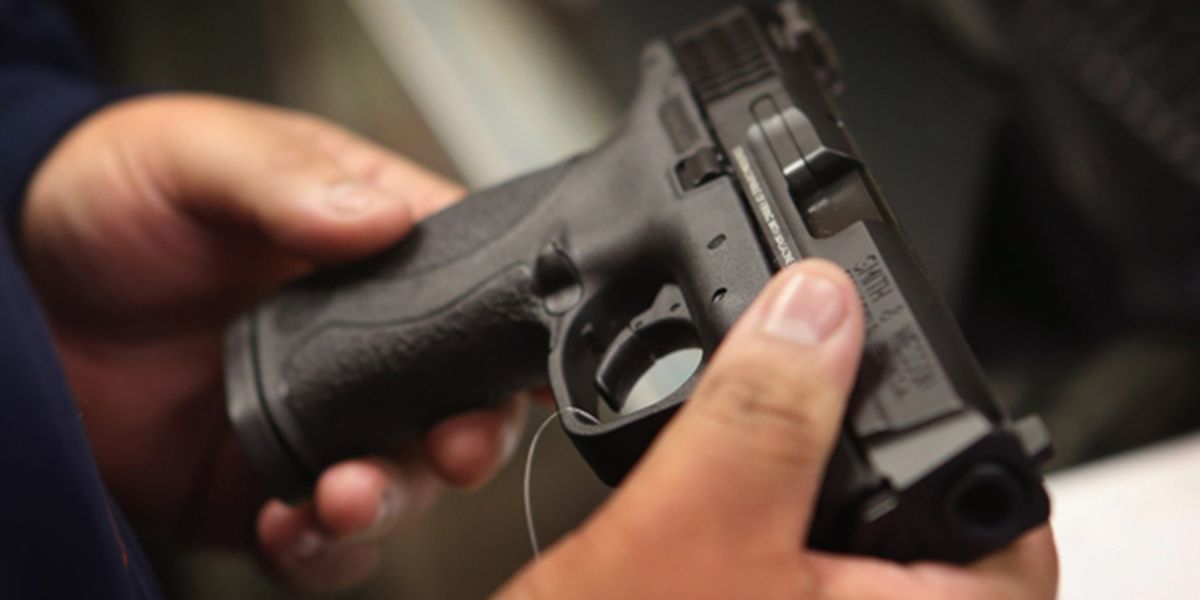Maine Takes Action! ‘Do-Not-Sell’ Gun Law Proposed After Tragic Suicide
When her two children were younger, Donna Nathan moved them from Massachusetts to Maine every summer for camping, canoeing, and other outdoor activities.
The summer vacations ceased as the children grew older, and Nathan finally relocated to New Orleans in 2004 to be closer to her daughter. More than a decade later, Nathan sought inpatient mental health care. After her voluntary stay ended, she left her home on June 26, 2018, traveled to a local gun shop, bought the only pistol she would ever own, and committed suicide shortly after leaving the store.
Nathan was 67 years old.
Her death resulted in “Donna’s Law,” which permits anyone to place their names on a “do-not-sell list” for weapons. Before Nathan’s murder, Washington state had already adopted such a provision in 2018, and Virginia and Utah followed suit with identical legislation.
Maine may join that group in enacting Donna’s Law, albeit not quickly. Rep. Vicki Doudera, D-Camden, introduced a bill last year that was revised this session to create a 13-member task group to investigate a method for Maine residents to voluntarily renounce their handgun rights.
The plan drew far less attention than the many gun restriction measures passed by the Democratic-controlled Legislature following the October 25 mass shooting in Lewiston, including a bill requiring a 72-hour waiting period. However, supporters claim it is an important suicide prevention tool in a rural state with a high gun ownership rate.
According to the most recent data, 158 of Maine’s 178 firearm deaths in 2021 were suicides. Doudera said she filed the bill in response to meetings with NAMI Maine and a woman’s suicide in September at Holden’s Maine Military Supply.
“It’s such a preventable tragedy that has repercussions that ripple down through the generations,” Doudera added.
Doudera was 14 when her 19-year-old relative committed suicide. She claims she will never forget coming home from school that day and seeing her parents’ cheeks smeared with tears. “That’s what drives me,” Doudera stated. “Remembering that day, the families I’ve met, and realizing that suicide is an act that is often very impulsive.”
Other states, including Delaware, are considering versions of Donna’s Law, which has received support from the American Foundation for Suicide Prevention, the National Alliance on Mental Illness, and other organizations, while the National Rifle Association and Gun Owners of Maine have argued that vulnerable people could be coerced into signing away their firearm rights.
Doudera’s bill, co-chaired by the Legislature’s Gun Safety Caucus, passed both chambers in April along party lines, with Sen. Rick Bennett, R-Oxford, being the lone Republican supporter. It did not win financing, despite the fact that its study will only cost $3,050 next year, but Doudera explained that this is because she promised colleagues she would work independently on discovering solutions over the summer before submitting her request next year.
Doudera raised a fundamental concern during committee hearings: which agency would handle the registration process for those on the confidential list? Before being changed into a study, her measure would have allowed citizens to submit a voluntary weapon rights waiver form to a county court clerk, who would then send the form to Maine State Police, who would put the information into the National Instant Criminal Background Check System.
People could request to be removed from the do-not-sell list after at least seven days, according to the initial idea. The three states with identical legislation require in-person or mailed-in requests to court clerks or law enforcement authorities, however, Utah now permits residents to apply through their healthcare providers.
Doudera, however, stated that neither the Judicial Branch nor organizations like the Bureau of Motor Vehicles could handle a do-not-sell list on their own. Nonetheless, she intends to consult with Public Safety Commissioner Michael Sauschuck to determine the best logistical course forward. Nathan’s daughter, Katrina Brees, who has lobbied for states to approve legislation named after her mother, said there is growing national support.
“People are understanding the value of it and how it doesn’t negatively affect anybody,” Brees added.
Fredrick Vars, a University of Alabama law professor who is credited with developing the concept that became known as Donna’s Law, has undertaken multiple studies on do-not-sell lists. Vars stated that even in “gun-loving Alabama,” a survey of 200 psychiatric patients revealed that 46 percent would register for a do-not-sell list, as did approximately 30% of general population respondents in a separate survey.
“The key thing is educating the public and getting people to sign up,” said Vars, who suffers from bipolar disorder and has previously considered suicide.
Lauren Jacobs, whose sister-in-law committed suicide with a gun in 2022, is among those who support Doudera’s plan. She was in her early thirties and a farmer, and Jacobs of Old Town characterized her as a “super creative” and “incredibly sensitive soul” who enjoyed feeding people nutritious food.
“When an adult is in crisis, there’s very little that family can do,” Jacobs said. “And having one more tool in a very scant toolbox is very worthwhile.”
Read more:
- Tennessee Firm Fined $650k for Illegally Employing Children in Meat Processing Plants
- Church Vandalism in Irwin: Youths Suspected of Damaging Sacred Instruments at Local Church










